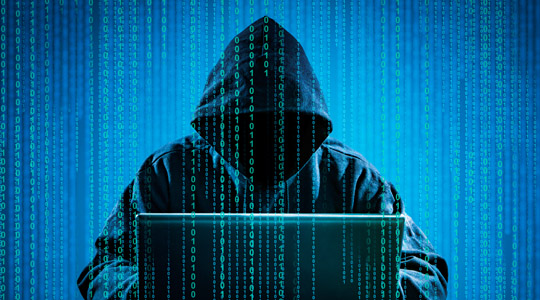Concluding our blog series for National Cyber Security Awareness Month is a post featuring the dark corners of the web. The Internet is defined as, “A global computer network providing a variety of information and communication facilities, consisting of interconnected networks using standardized communication protocols.” This definition hints at just how expansive the Internet is, being a global network. The name “World Wide Web,” is also very telling of the Internet’s true breadth. Due to its sheer size, there is a wide majority of the Internet that is unexplored. According to an article The Deep Web you don’t know about on CNN, “Top university researchers say the Web you know — Facebook, Wikipedia, news — makes up less than 1 percent of the entire World Wide Web.” Pages that we are able to view via address or search are accessible because they are not reliant on private networks or databases. In terms of privacy, internet service providers are able to track what IP addresses individuals visit, allowing them to keep record of each person’s browsing history. This enables them to view the “digital footprint” of users on a given network. On such networks, criminals need to expend a lot of effort to avoid being tracked or caught by authorities due to the trail created on the regular Internet. While fraud can still take place on the regular Internet, the Deep Web offers criminals anonymity.
Deep Web and Possibilities
The Deep Web, in comparison to the regular Internet, consists of 99 percent of the actual World Wide Web. Despite its mysterious nature, not all of the Deep Web is a hub for criminal activity. According to a report by BrightPlanet, a company that probes the Deep Web, “More than half of the Deep Web content resides in topic-specific databases.” This finding indicates that the majority of the Deep Web houses information that is not typically accessed by the regular internet user. In order to access this portion of the Internet, one must do more than open a normal browser and enter a web address. To venture to these depths, a special, secure browser called a “Tor” is needed. The Tor browser works to promote anonymity, by routing traffic through different relays, so that a specific IP address cannot be traced. This is made possible by the help of volunteers. Volunteers offer their networks which users bounce from. The process is untraceable for the most part, the point of most concern being exit nodes. Exit nodes are where a user eventually leaves the Deep Web and resurfaces into the regular portion of the Internet.
With plenty of emphasis on being anonymous and untraceable, there is undoubtedly a presence of illegal activity on the Deep Web. A popular website and market, Silk Road, was shut down by the FBI in 2013 due to its reputation as a “criminal marketplace.” There were a range of goods and services for sale, from narcotics to stolen credit cards. Throughout the Deep Web marketplaces, Bitcoin is the currency of choice, as it offers no traces or indicators of who the individuals are behind the transaction. By comparison, if such activity were to take place on the regular Internet, it could be swiftly traced and addressed by authorities.
How Crime Can Be Traced on the Deep Web
With the wide base of Tor users, governments and authorities have begun combating the crimes perpetrated in its marketplace. The Dark Web is seemingly secure, but it is not an impenetrable network, which is a vulnerability that law enforcement thrives on. According to an article posted on Vice, there are several tactics used to combat Deep Web crime, such as going undercover, hacking, mass surveillance, following the trail of Bitcoin (link to the Bitcoin blog post), and monitoring the postal system. These methods are effective, but breed a suspicious and dangerous culture within already unsafe marketplaces. This may culminate in sellers running away with the money of buyers to avoid garnering the attention of police. This indicates that while criminals constantly evolve and advance, the authorities are advancing right along with them. While using the Internet, there are a couple tips to stay safe online and prevent ending up in dangerous or inconvenient situations, some of which you can read about here.







